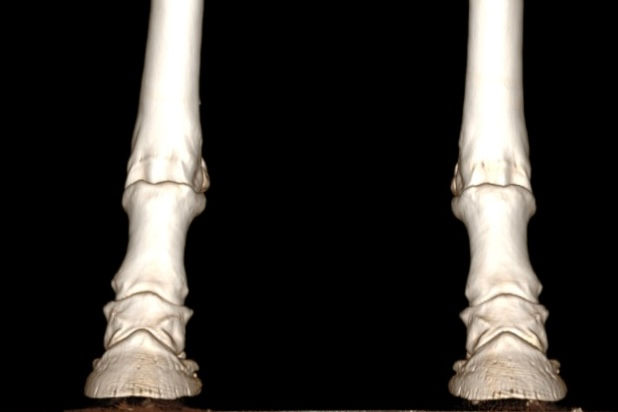Rocking Speer Ranch Breaks Social Media
- Rocking Speer Ranch, LLP Farrier Services

- Aug 14, 2024
- 4 min read
In today’s digital age, it’s easier than ever to find advice on any topic with just a few taps on your smartphone. Whether you’re looking to fix a leaky faucet or figure out what’s wrong with your horse, someone on the internet has an opinion. But when it comes to your horse’s health and well-being, it’s crucial to understand that not all advice is created equal. There’s a stark contrast between the knowledge of a professional farrier or veterinarian and the flood of information—or misinformation—on social media.
The Allure and Danger of Social Media Advice
It’s tempting to hop onto Facebook or scroll through Instagram when you’re worried about your horse. After all, there’s a community of horse lovers out there, ready to share their stories and solutions. But here’s the problem: many of these people are well-meaning but ultimately unqualified to give the advice they’re so eager to dispense. They’re not trained professionals; they’re just fellow horse owners with anecdotal experiences that might not apply to your horse or situation.
Social media is full of anecdotal stories and homegrown remedies that might work for one horse but could spell disaster for another. It’s a breeding ground for disinformation, where opinions are presented as facts, and unverified claims are passed around like gospel. The problem is so widespread that even professionals are taking notice.
Take this quote from a veterinarian in the United Kingdom, who joined a Facebook group about managing laminitis: "I am an equine vet and joined the managing laminitis group to help provide professional evidence-based advice. I just wanted to thank you for the advice you have been giving people and for taking the time to explain to them! It's refreshing to see on such a group - as there are some very interesting anecdotal answers there which could have dire consequences!”
This vet’s words highlight a critical issue: the sheer volume of “interesting” advice on social media that could lead to dangerous outcomes. What works for one horse in one specific set of circumstances might be harmful to another, and without proper knowledge and context, it’s easy to make a mistake that could cost your horse its health—or worse.
The Expertise of Farriers and Veterinarians
Let’s be clear: there’s a world of difference between the education and training of a professional farrier or veterinarian and the information shared on social media. Farriers who have gone through proper schooling spend years studying the biomechanics of the horse’s hoof, learning the intricacies of different shoeing techniques, and understanding the anatomy of the lower limb. They’re not just sticking on a shoe; they’re making precise adjustments that can have significant impacts on a horse’s performance and well-being.
Veterinarians undergo even more rigorous training, spending upwards of eight years in academic study, not to mention the years of hands-on experience required to become proficient. They are trained to diagnose and treat a vast range of health issues in horses, relying on evidence-based practices that have been thoroughly tested and vetted by the scientific community.
When you consult a farrier or a veterinarian, you’re getting advice backed by years of education, research, and practical experience. Compare that to the random person on social media who might have read an article or two—or worse, is repeating something they heard from someone else. The difference in the quality and reliability of information is night and day.
Fact vs. Opinion: Knowing the Difference
One of the most critical skills in the digital age is the ability to distinguish between fact and opinion. A fact is something that can be proven true or false, backed by data, research, or direct observation. An opinion is a personal belief or judgment that is not necessarily based on fact or knowledge.
Unfortunately, social media tends to blur the lines between these two. It’s easy to find someone passionately advocating for a particular treatment or method, but just because they’re confident doesn’t mean they’re correct. An opinion, no matter how strongly held, is not a substitute for a fact. This is where many horse owners get into trouble—mistaking strong opinions for sound advice.
There’s also a difference between an internet blog study and academic research. Blog studies often lack the rigor and peer review that academic research undergoes. Academic studies are conducted by experts in the field, following strict methodologies to ensure accuracy and reliability. Blogs, on the other hand, can be written by anyone with an internet connection and a keyboard.
The Importance of Researching Accredited Sources
Before making any decisions about your horse’s care based on something you read online, take a moment to consider the source. Is the information coming from a qualified professional? Has it been verified by credible, peer-reviewed research? Or is it just someone’s opinion or personal experience?
When in doubt, consult with a professional. Farriers, veterinarians, and other trained equine professionals are your best resources for accurate, reliable information. They have the education, experience, and knowledge to provide advice that’s tailored to your horse’s specific needs.
If you’re researching online, look for information from accredited institutions, such as veterinary schools, professional farrier organizations, or peer-reviewed journals. These sources are far more likely to provide accurate and reliable information than a random blog or social media post.
Final Thoughts
In the battle of the farrier vs. social media, the farrier—and the veterinarian—should always come out on top. Social media can be a valuable tool for connecting with other horse owners, but it’s no substitute for professional advice. When it comes to your horse’s health and well-being, don’t take chances. Seek out the facts, consult with experts, and always prioritize evidence-based practices over anecdotal stories. Your horse will thank you.



Comments